Papa Vinyard here, now here's a little somethin' for ya...
This column will tackle an Oscar winner from each year starting with the inception of the Academy Awards in 1929. My goal is to highlight lesser-known films from throughout cinema history that were able pull down one (or more) of the Golden Statuettes that remain such an integral part of Hollywood lore. I will also take a close look at the actual element(s) that the film was given awards for, with my analysis on how they hold up with years (or decades) of cinematic history in the rearview since. Today, I'll be tackling the 2013 winner for Best Documentary Feature, SEARCHING FOR SUGAR MAN. Tune in next week, same bat-time, same bat-channel for my look at 1930's THE BROADWAY MELODY, the first Best Picture to feature Technicolor and synced sound.
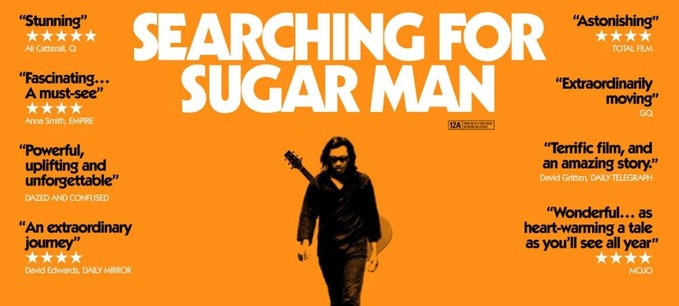
"It's 40 years since this LP called Cold Fact by Rodriguez was released, and in South Africa, it was a very popular album. It was one of the biggest albums of the day. But the thing was we didn't know who this guy was. All the other rock stars, we had all the information we needed, but this guy? There was nothing. Then we found out that he had committed suicide; he set himself alight onstage and burned to death in front of the audience. It was the most incredible thing. It wasn't just a suicide, it was the most grotesque suicide in rock history." - Stephen "Sugar" Segerman
Think of your favorite musical act. It can be a lesser known entity or a supergroup, no matter. Now imagine that, aside from their music, no one had ever heard anything about them, not their birthplaces, their backstories, or certainly whatever ended up happening to them. More than that, there were rumors that they had killed themselves publicly in a magnificent manner, either by blowing their brains out or lighting themselves on fire onstage.
Now, some time goes by, and you're a little bit older, and you figure you can use the internet to gain some knowledge about this artist(s). Lo and behold, not only do you find out everything you wanted to know about him/her/them, but you find out the fucker(s) is still alive and able to perform.

That's essentially the plot of SEARCHING FOR SUGAR MAN, a documentary about two guys looking for their fallen hero and bringing him back from the dead, stronger and more beloved than ever. Director Malik Bendjelloul starts out by telling the parallel stories of South Africans Stephen "Sugar" Segerman (whose nickname was inspired by the song mentioned in the film's title) and Craig Bartholomew Strydom as they attempt to figure out the secrets of Rodriguez, a rock star who is massively popular in their country, but seemingly forgotten everywhere else.
Sixto Rodriguez (named as such for being the sixth child of his family) was born and raised in Detroit, as well as recording his two released albums there, and that's where Benjelloul starts to put the pieces of the narrative together. We hear firsthand accounts of what he was like from the people who worked with him, such as producers Dennis Coffey, Mike Theodore, and Steve Rowland, who paint the picture of an enigmatic, uber-talented figure who came off as something of a "wise man" or a "prophet." They all show immense respect for his ability, but lament his struggle to get any traction in terms of record sales. A (mostly unspoken) conclusion: although the music sounded more like folk-rock than salsa or world music, the moniker "Rodriguez" was foreign enough to turn off stateside listeners in mass numbers.
What these American producers don't know (or don't mention in their interviews, anyway) is that Rodriguez, in particular his first album Cold Fact, struck a chord with rebellious, apartheid-era youth in South Africa. We are shown that Rodriguez is considered a staple of classic rock in the country, surpassing Elvis Presley and The Rolling Stones in terms of record sales.
"In the mid-'70s, if you walked into a random white, liberal, middle-class household that had a turntable and a pile of pop records, and if you flipped through the records you would always see Abbey Road by The Beatles, Bridge Over Troubled Water by Simon & Garfunkel, and you would always see Cold Fact by Rodriguez. To us, it was one of the biggest records of all time." -Stephen "Sugar" Segerman
Several of Sixto's songs like "I Wonder" and "The Establishment Blues" became anthems for the anti-National Party movement. Segerman and Strydom directly credit Rodriguez for introducing the ideas of being anti-establishment and ambivalent towards government into the strict, tense South African political scene.
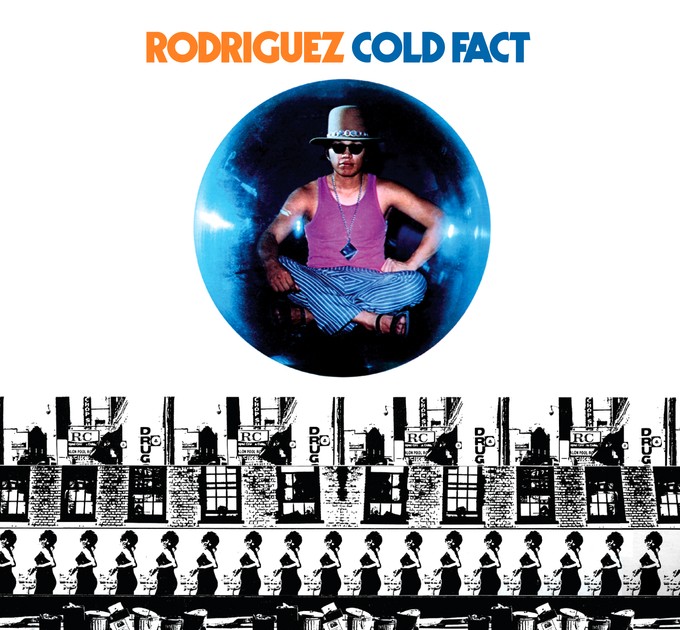
Cold Fact sold over half a million copies in South Africa, but there was next to nothing known about him, so Segerman seizes an opportunity to attract some attention to his curiosity when he writes the liner notes for a re-release of Coming From Reality, Rodriguez's second album in 1996.
There was no concrete evidence about the artist known as Rodriguez. It is not known if he is even alive or dead. Any musicologist detectives out there?"
This gets the attention of Strydom; he'd already had "Find out how Rodriguez died" on his wish list of topics, and this was the perfect dare to get him motivated to dig into the subject. Taking Hal Holbrook's advice from ALL THE PRESIDENT'S MEN, Strydom attempts to "follow the money," and track down where all the royalty checks from the official (non-bootleg) South African release of Cold Fact actually went. He tracks it down to record exec Clarence Avant, which turns out to be a dead end; the details are muddled, but it's inferred that very little, if any, of the money actually made it into the pocket of Rodriguez or his relatives.
Strydom does get ahold of Mike Theodore, and finally gets to ask his golden egg question: how did Rodriguez die? And then, Mike Theodore relays to Strydom the information that fuels the second half of this film, and changes the trajectory of Rodriguez' musical career forever: "Sixto Rodriguez is alive and kicking and living in Detroit."
Roger Ebert, in his four-star review of SEARCHING FOR SUGAR MAN, purposefully neglects to mention that Sixto Rodriguez didn't, in fact, die in the '70s. "If there is any chance you nothing about this film," he says," I am not going to reveal its ending. Let me just say it is miraculous and inspiring." I have to admit, even knowing that the story would culminate with a victorious South African tour, the mystery surrounding Rodriguez's whereabouts totally worked on me from a dramatic point of view. We get enough of a sense of his widespread fame in South Africa that the idea that he's still alive and completely unaware of his immense popularity there is a very attractive, provocative engine for the latter half of the movie. The tension goes away; you know he's alive, you know he's fine, and you know that he's being clued in as to his cultural significance in South Africa. From then on, the film becomes a victory lap for the long-stalled music career of Sixto Rodriguez, kicked off by our first look at the singer-songwriter while he sits by his window in downtown Detroit.
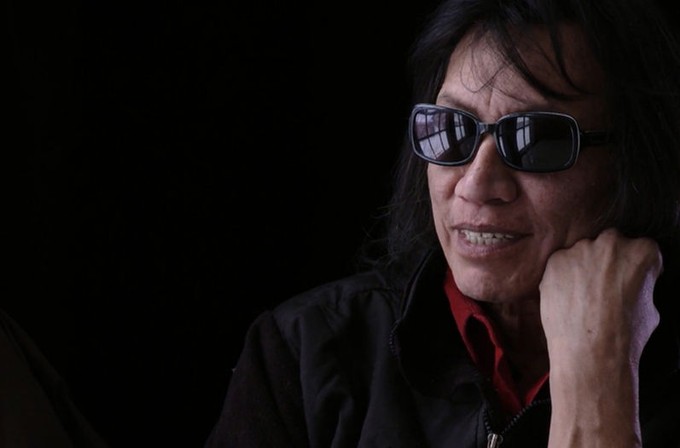
In his interviews, Sixto seems less like an elusive, Bob Dylan-esque figure than a humble, ego-less artist. Mind you, Bendjelloul shot the one-on-ones for this film over a decade after Rodriguez's "renaissance," but we get the idea from his family and friends that he hasn't really changed all that much in the interim. He still works his hard labor day job, sweeping roads and remodeling buildings as he did when he was anonymous. He's given most of the money he received from his six sold-out South African live shows to friends and family, and we see him firing up a wood stove in the small apartment in Detroit he's lived in for decades. He dismisses the notion that he's a "superstar," defends his manual labor job by maintaining "it keeps the blood circulating," and only passively mentions that he still loves playing guitar.
But we see footage of the South African performances, and you see that no amount of dramatic licensing could do Rodriguez's story justice. He was a legend to these people, and until the moment he first performed for a crowd, they were all pretty sure he was dead; even those who knew that he was lined up to tour thought he was an impostor, like an Elvis impersonator or Gallagher 2, the comic's brother who tours with the same act.
The crowds ravenous reverence for him is palpable; when he first walks out on stage to the bass line to "Sugar Man," the roar is so deafening that the back-up band is forced to oblige and stop playing so the masses can get their fan worship for this guy out of their system. Sixto's first words to the audience are touching in their sincerity, and give us one of our only peeks at how grateful he is for the "comeback": "Thanks for keeping me alive!"
As much as that comment was directed towards his fans, as well as Segerman and Strydom, it could be meant for Bendjelloul for making this film. While he may have been a household name in South Africa since the mid-to-late-'70s, SEARCHING FOR SUGAR MAN is what brought him stateside recognition for his musical and lyrical skills. He made appearances on both Letterman and The Tonight Show promoting the film's release, and he played the 2013 Coachella and Glastonbury music festivals. The soundtrack for the film and Cold Fact peaked at 76 and 78, respectively, on the Billboard charts, proving that more Americans are aware of, and appreciate, his music than ever before.

Contradicting the narrative, however, is the fact that, 20 years before he toured South Africa, Rodriguez learned that he was a big hit in Australia, and played shows there from '79-'81. In fact, there are theories that the first Rodriguez records that arrived in South Africa came straight from Australia, rather than from a traveling American girl as the movie claims. It's obvious that Benjelloul omitted this fact from the narrative to heighten the suspense and drama of the quest to discover more about the musician, but it also creates this (somewhat invented) intimacy between Rodriguez and the people of South Africa.
In the way his words fueled anti-apartheid rebellion and the rumors of his death made him into a sort-of rock-and-roll martyr, it's almost like the nation "adopted" Rodriguez as a discarded relic of U.S. pop culture. It's hard to imagine, but this guy was absolutely nothing here, a Detroit laborer whose other claim to fame was an unsuccessful bid at city council, and his music was being chanted at political rallies half a world away. We get a swell of euphoria when he plays for his South African fans; this was where he was destined to be, and although it took him almost 30 years to get there, he made it, and we feel the success at the end of his journey like he's Frodo finally dropping his ring into Mount Doom.
But is that emotion worth the cost of leaving out crucial details? This is the overarching question that plagues all documentary filmmakers, which is: where do you draw the line between crafting a clean narrative and letting the facts tell the story for you? By making the connection between Rodriguez's music and the anti-apartheid movement, as well as emphasizing South Africa's apartheid-era disconnect from the rest of the western world, Benjelloul makes the singer's relevance in S.A. more significant than his fame (or lack of it) elsewhere in the world.
Rather than the real-life story of Sixto Rodriguez, the film is more about a South African fanbase that sparked up on its own, and gave the forgotten singer a long-awaited comeback decades after his last album was recorded. The Best Documentary Feature Academy Award validates the idea that the "truthiness" (as Stephen Colbert puts it) of this narrative is more significant than the actual truth of its content, as well as the success of Benjelloul in his efforts to achieve said emotion. In the end, when it comes to winning Oscars, it's a movie, not a history lesson.
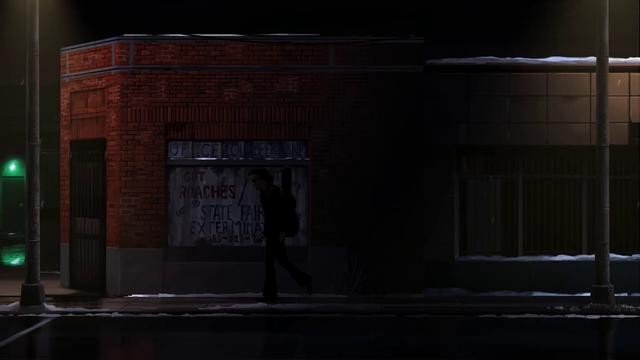
Not to say the film doesn't have an interesting aesthetic in its favor. The editing, pacing, and cinematography are all slicker than they are in most docs; from the opening of Segerman singing along to "Sugar Man" while driving throw the mountains of Cape Town through the interviews with Rodriguez and his family, the film never lets the details of the narrative bog down its sense of style. The whole thing is set to Rodriguez's own tunes, and they create a sweeping rhythm that acts like a metronome, constantly upholding the flow of the film.
There are extended sequences of nothing but shots of Detroit and South Africa (initially shot on 15 mm, then on a cell phone when the format proved too expensive) set to songs from Cold Fact and Coming From Reality that go a long way in setting up both the myths surrounding the singer and the potency of his work. They also do a great job of buttressing the "talking heads" interviews, which, admittedly, are consistently interesting, emotional, and loaded with pertinent info.
In making this film, and earning it the highest award possible for a documentary feature, Malik Bendjelloul was able to do just as much for Rodriguez's image and place in rock history as Segerman and Strydom were able to do back in the mid-to-late-'90s. He was a Swedish filmmaker making a documentary about the South African worship of an American singer, and pulled it off so well that he ran off with one of the most prestigious honors in the biz (as well as BAFTA, DGA, PGA, WGA, and ACE awards) and a 96% Rotten Tomatoes score for his movie.
Mark my words, as much as DON'T LOOK BACK or GIMME SHELTER before it, SEARCHING FOR SUGAR MAN is going to influence the next director looking to tackle a documentary about rock music. "I Wonder" if it's the potency of Rodriguez's music, the efforts of Strydom, Segerman, and Bendjelloul, or the recognition of the Academy of Motion Picture Arts and Sciences which will be responsible for that.
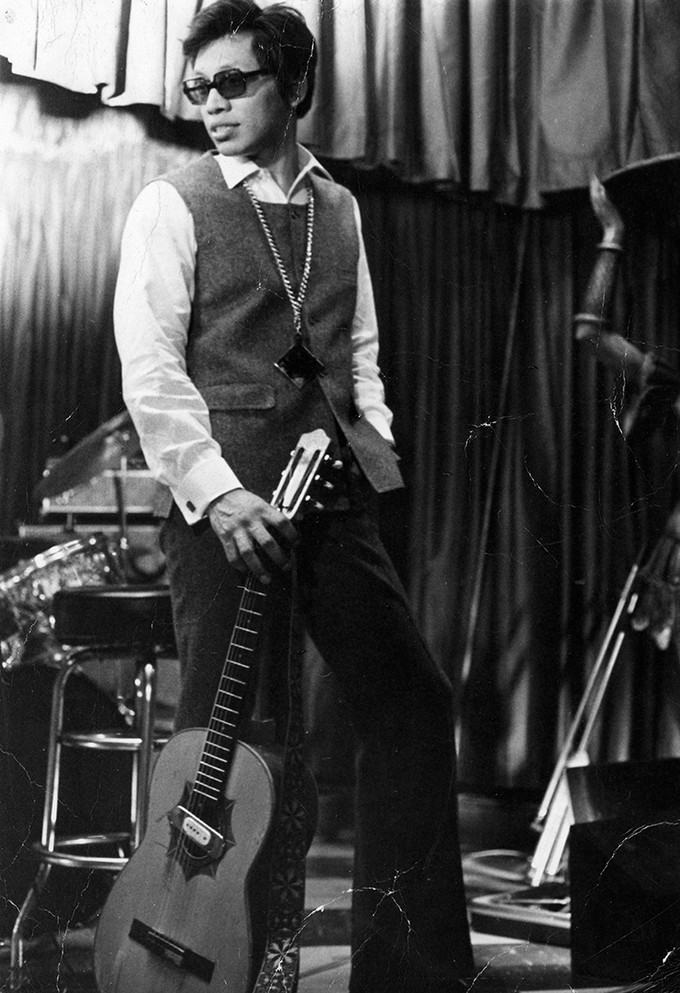
"SEARCHING FOR SUGAR MAN" is a documentary that enlists us in the process of its search. Using archival footage, it shows both Segerman and Bendjelloul pressing ahead in a quest that became increasingly frustrating. The information they eventually dislodge about Rodriguez suggests a secular saint, a deeply good man, whose music is the expression of a blessed inner being. I hope you're able to see this film. You deserve to. And yes, it exists because we need for it to. -Roger Ebert
-Vincent Zahedi
”Papa Vinyard”
vincentzahedi@gmail.com
Follow Me On Twitter
